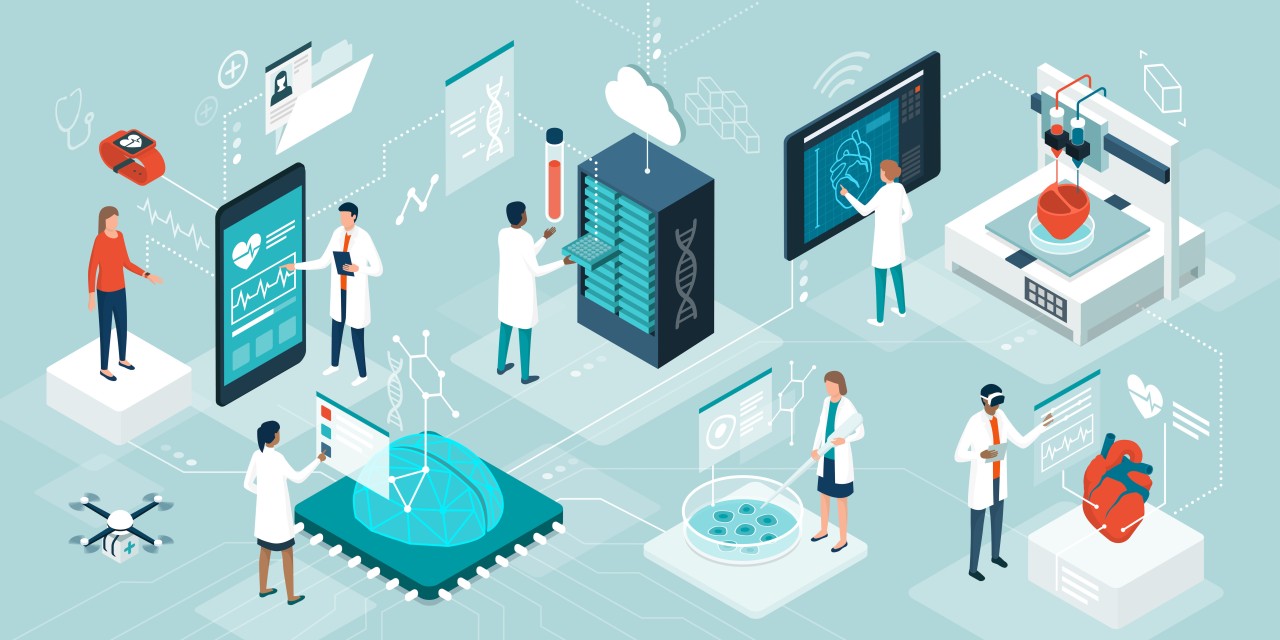Mackenzie Green, Experience Strategist, CourtAvenue
Empowering Healthcare with AI: Transforming Patient Experience and Education
If you’re paying attention to technology trends, you’ve been finding ways to insert AI into your product, job, or daily life. While it’s easy to get carried away with innovating for the sake of it, I think it’s crucial to focus our innovation, especially in AI, rooted in solving real-life problems and making the world a better place.

With all the known user pain points in existing products and experiences, there are huge opportunities to think of creative solutions using new AI capabilities.
It’s well known that education is a huge opportunity and pain point in healthcare - both in treatment and in health insurance.
Let’s consider the experience of receiving lab results, such as a standard blood test, through a common patient portal such as MyChart. This can be a confusing and potentially stressful experience for most people, especially if any of their results are abnormal. Countless questions can run through our heads: What do these different tests with confusing names mean? Why is this result low or high? What does this mean for my health? Is this something to be concerned about? Do I need to do something?
In an ideal scenario, doctors would have the time and opportunity to promptly share detailed notes on results with their patients or engage in personal conversations to discuss all findings. However, the reality is far from perfect, as physicians often face overwhelming workloads and time constraints.
What if we used the abilities of AI to share definitions and context in layman’s terms proactively? Instead of patients running to Google to try to make sense of their lab results (and risk being incorrectly diagnosed with an extreme health issue) or finding a Reddit thread with misinformation, lightly personalized summaries could be shared directly in their patient portal with their results. Test definitions and context could be shared with patients so they could learn what each test measures. Light guidance on abnormal results could be shared to address immediate questions and concerns while advising that their physician will give additional guidance.
User research would be needed to understand human attitudes on AI usage in healthcare before implementing any heavy AI tools in this manner and it’s crucial to protect the confidentiality of patient information, but there’s a lot of potential to use vetted AI guidance to make healthcare more approachable for the average person. We could think of AI tools as an assistant to healthcare providers: answering selective patient questions proactively and on-demand, while guiding patients to schedule an appointment or call their provider when it’s more appropriate for the situation.
It’s well known that AI is a powerful tool with high potential. As tech professionals, we should all utilize critical design thinking when creating and using this technology. Focusing on using our empathy to solve real problems will not only improve the human experience but also create more successful products while setting standards for the appropriate use of emerging technologies.
